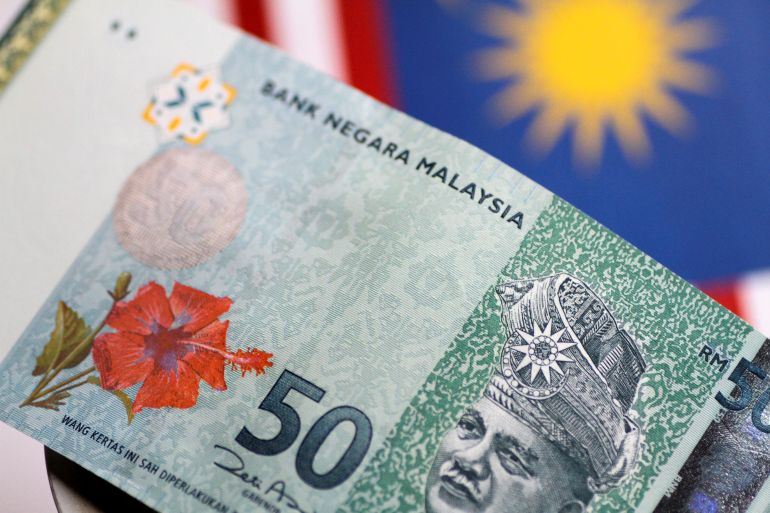Malaysian currency, stocks fall as vote ends in hung parliament
Markets react negatively after election results in first hung parliament in Southeast Asian country’s history.

Malaysia’s stock market and currency dipped after a national election produced the Southeast Asian nation’s first hung parliament, setting off a scramble to form a coalition before a Monday afternoon deadline.
The ringgit fell almost 0.8 percent against the US dollar in early trading on Monday before recovering to be down 0.1 percent, as markets weighed the possibility of an extended period of political instability.
Keep reading
list of 4 itemsWorld leaders arrive for APEC under shadow of Ukraine war
Thai PM calls for sustainable growth as tensions overshadow APEC
Hong Kong leader tests positive for COVID after APEC forum
Kuala Lumpur’s benchmark index fell as much as 1.5 percent.
“The hung parliament was largely expected but is still viewed as negative in the short term as it means that they will once again have to cobble a coalition to rule,” Trinh Nguyen, a senior economist for Asia at Natixis in Hong Kong, told Al Jazeera.
“In other words, politics takes precedence above all else, and it’s still unclear who will triumph and to what extent they can push through the mandates. Key issues like fiscal consolidation will be challenging as there is a political deadlock. We expect investors to hold off on investment until there is more certainty regarding politics and policy direction.”
Malaysia’s national election on Saturday failed to produce a clear winner, with neither the Pakatan Harapan (PH) nor Perikatan Nasional (PN) coalitions securing the required 112 seats to form the government.
PH, led by opposition Anwar Ibrahim, won 82 seats, while PN, led by former Prime Minister Muhyiddin Yassin, secured 73 seats.
Both Anwar Ibrahim and Muhyiddin have claimed to have enough support among legislators to form a new government.
Malaysia’s King Sultan Abdullah Sultan Ahmad Shah on Monday extended by 24 hours a deadline for legislators to notify the palace of their preferred government, shortly before the original deadline was set to expire at 2pm.
Malaysia, an ethnically-diverse nation made up of a Malay majority along with significant communities of ethnic Chinese and Indians, has been gripped by political instability since PH won a historic victory in the 2018 election, ending the 60-year rule of the Barisan Nasional coalition.
PH collapsed amid political infighting in February 2020, resulting in the appointment of Muhyiddin as prime minister. Muhyiddin was himself pushed out a little over a year later and replaced with BN’s Ismail Sabri.
Southeast Asia’s fourth-largest economy has bounced back strongly from the COVID-19 pandemic after suffering its biggest contraction since the 1998 Asian financial crisis.
Gross domestic product (GDP) surged 14.2 percent during the July-September period, after growing 8.9 percent during the second quarter.